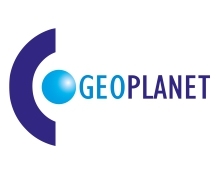International School on INtegrated Environmental Studies in the Arctic (INES) with respect to climate changes
28 September – 2 October 2020
Lecture descriptions
Prior to the school, all participants will obtain a script, which will contain background knowledge, necessary to follow the lectures. The script will be made available to the participants after the decision letter in May.
School schedule
Block of lectures: 45’ + break 15’ + 45’ + break 15’
Day 1 Oceanography basics and Arctic cryosphere + Biology/Ecology
9.00-11.00 Introduction to Oceanography
Introduction of Arctic conditions: ice cover, glaciers, specific atmospheric condition
Lecturer: Agnieszka Beszczyńska-Moeller, Physical oceanographer, Adam Nawrot, Snow and Ice cover specialist
11.00-13.00 Marine and terrestrial food webs, external drivers (abiotic and biotic), and adaptations to changing conditions in the Arctic
The marine and terrestrial ecosystem in European Arctic is very closely coupled, as most of the birds collect food ate sea and nests on land, nutritioning the coastal tundra. The cold temperature forced slow metaboilism, slow growth, and often large size in most of marine invertebrates in Arctic. This is changing now with ongoing warming. The Arctic food web gets more diverse, dispersed, with number of new species of small size.
Lecturer: Jan Marcin Węsławski, Marine Ecologist; Ulf Karsten, Marine biologist
13.00-14.00 Lunch break
14.00-16.00 Biodiversity changes and adaptations to changing climate
Contrary to most other regions, the warming brings higher diversity to the Arctic, as the species, that were removed from the high North by glaciation are coming back with the rising temperature. This creates major alteration of the ecosystem, that are not straightforward to predict.
Lecturer: Jan Marcin Węsławski, Marine Ecologist; Ulf Karsten, Marine biologist
16.15-19.00 Workshop: Societal relevance of climate change in the Arctic
We now realize that processes, which take place in the Arctic have significant influence on both marine ecosystems and human activities, which in turn have serious socio-economic implications for the rest of the world, with special significance for Europe. Therefore, using interactive techniques, in groups, we will discuss and work on a project to increase general awareness of good practices in ocean and climate mitigation and adaptation actions, including broadly understood SDGs in relation to Arctic issues
Lecturers: Joanna Piwowarczyk, Social Ecology Expert; Tymon Zielinski, Researcher
19.15 Icebreaker
Day 2 Physical and chemical atmospheric processes with focus on the Poles
9.00 – 15.45 Physical and chemical atmospheric processes, including long range and local sources of pollution
9.00-11.00 General atmospheric observation and remote sensing in the Arctic
Lecturer: Christoph Ritter, Leading lecture
11.00-13.00 The role of aerosol chemistry in the Arctic Climate: transport, local aerosol formation and implication for optical properties and heating rate
Lecturer: Luca Ferrero, Environmental application lecture
13.00-14.00 Lunch break
14.00-16.00 Written in the ice. Past climate reconstructions from ice cores
Lecturer: Carlo Barbante, Leading lecture
16.00-18.00 Ice core and sediment markers for reconstruction of paleoclimate and ice extent
Lecturer: Rita Traversi/Silvia Becagli, Environmental application lecture
Day 3 Practical exercise day with measurements at sea on board a research vessel
During the day long research cruise in the Gulf of Gdansk, onboard r/v Oceania, participants will have a chance to take active part in real oceanographic and atmospheric measurements. The participants will be able to work using state-of-the-art instruments and then will be involved in data analyses.
9.15-10.00 Transport to r/v Oceania
10.00-18.00 Interdisciplinary measurements on board r/v Oceania.
10.00-11.00 Boarding, travel to the stations
Familiarization with the rules and regulations onboard
11.00-18.00 Working in groups
12.00-13.00 Lunch break
18.00-18.30 Transport to the IO PAN
Day 4 Long-Term Evidences
09.00-16.00 Long-term observations and trends in aerosols, temperature, precipitation, clouds, radiation ice and snow cover/extent
Sustained, accurate, long-term global observations of key variables in the climate system are essential to describe seasonal-to interannual or even decadal climatic modulation or trends in the Arctic about aforementioned topics with examples. The main goal is working with the quality-controlled collection that documents changes in the environment as well as the background data from previous day for experimental studies. This day will be separated into blocks of activities.
16.00-17.00 Lunch break
Day 5 Practical exercises on climate data
9.00-13.00 Real data analyses
During this day, participants will be divided into groups in order to complete small research projects, based on real data, either collected during the measurements on r/v Oceania, or, in case of lack of such data, using data sets prepared by the organizing team. At the end of the day, each group will present the outcome of their project. Each group will be assigned to a lecturer.
13.00-14.00 Lunch break
14.00 Closing of the school.







